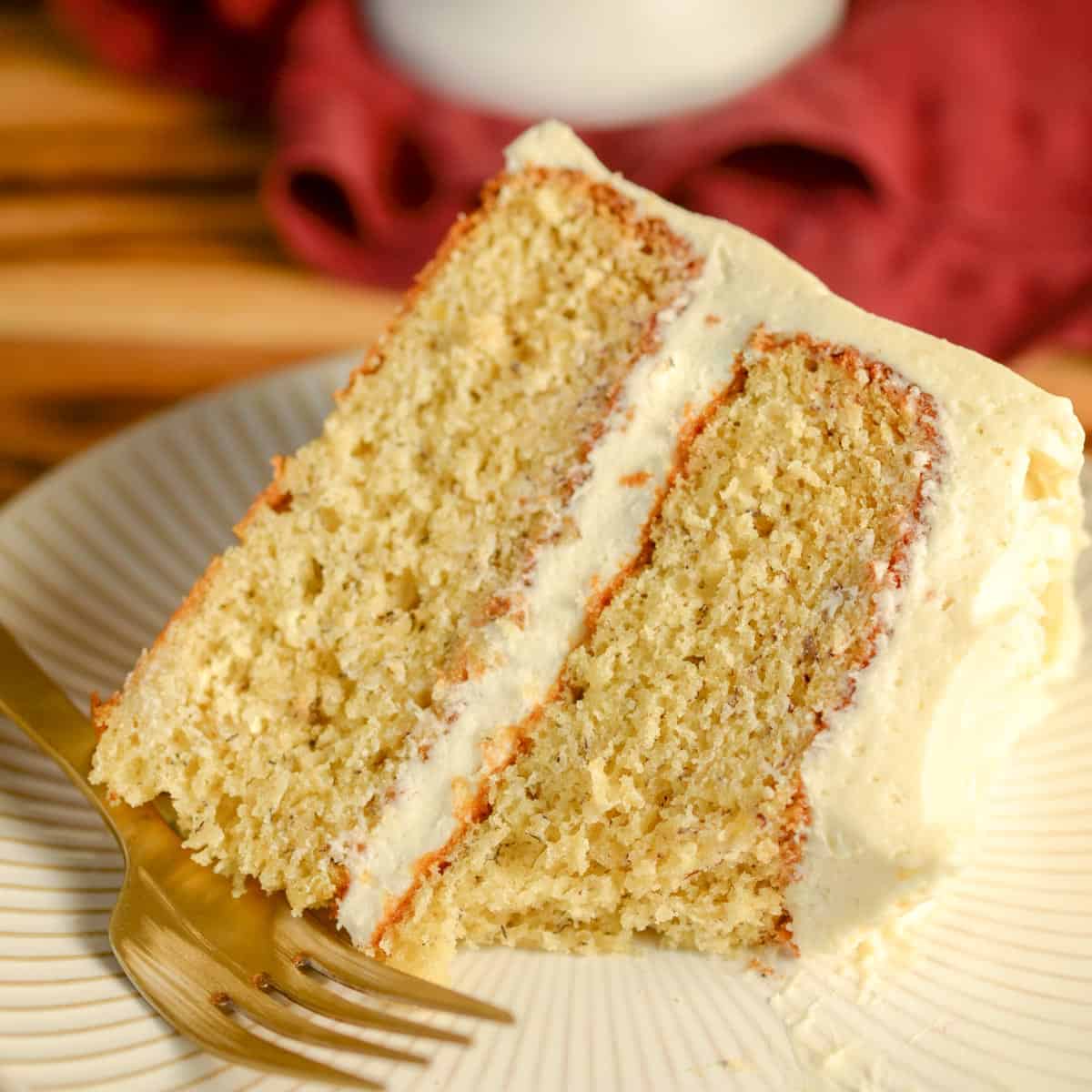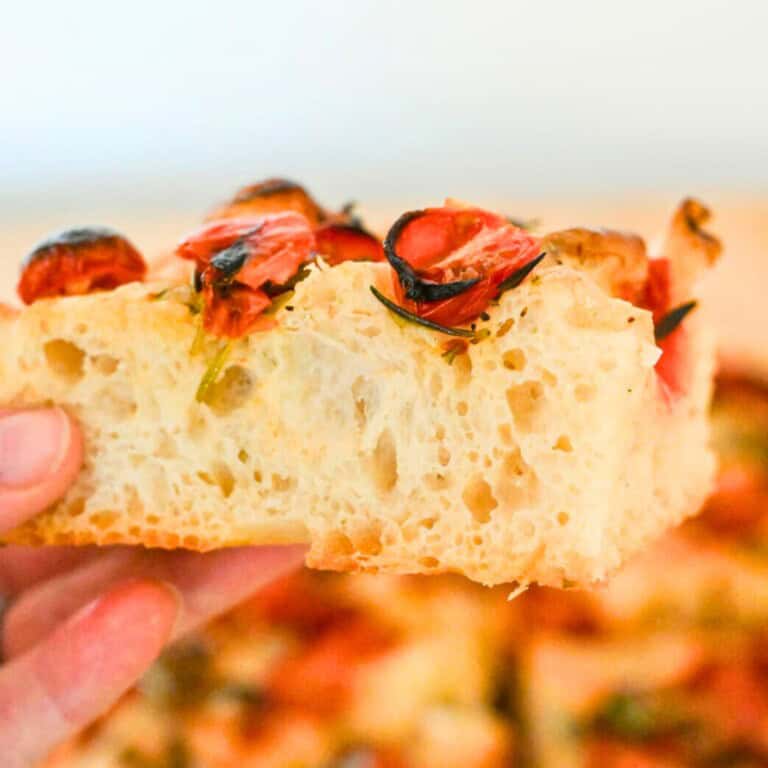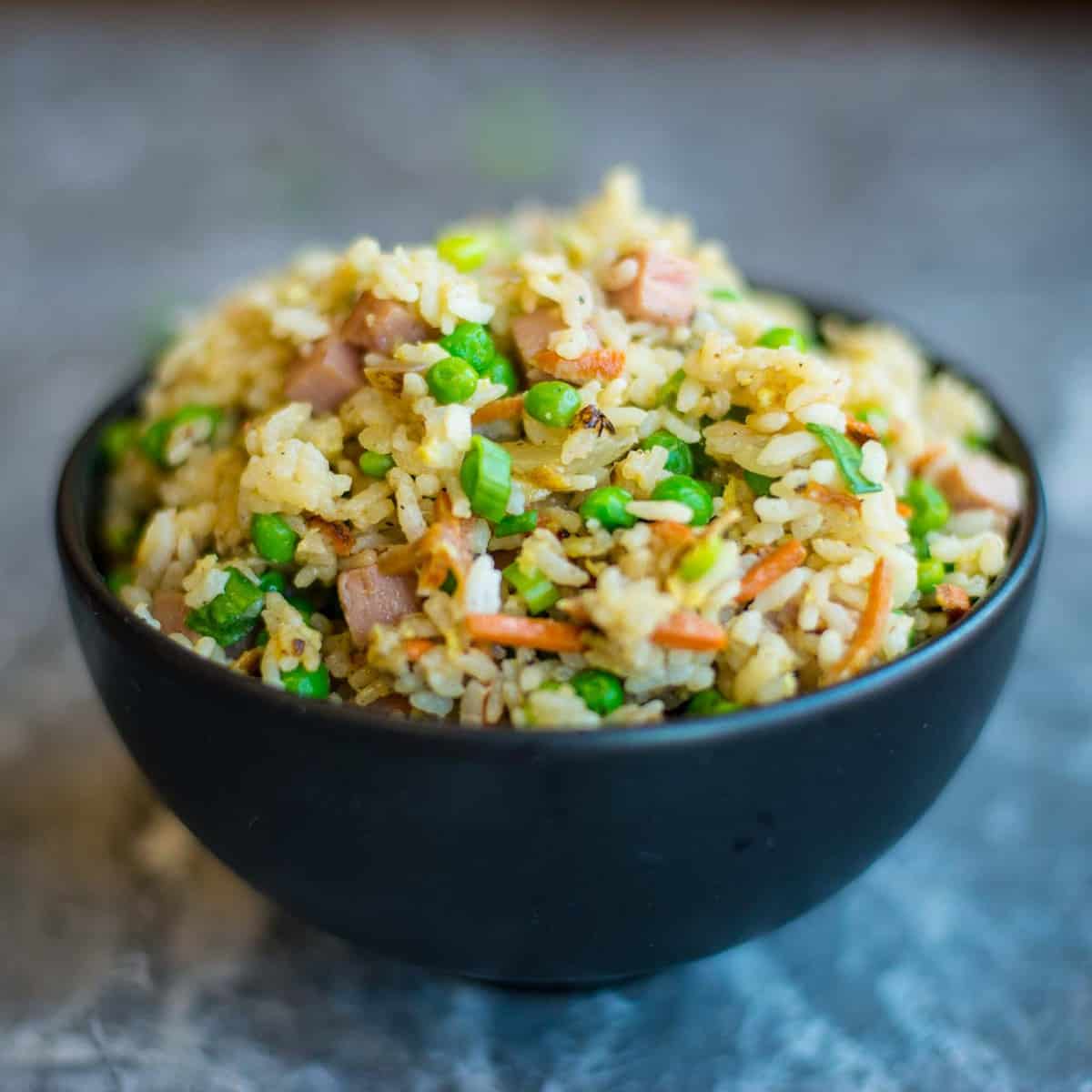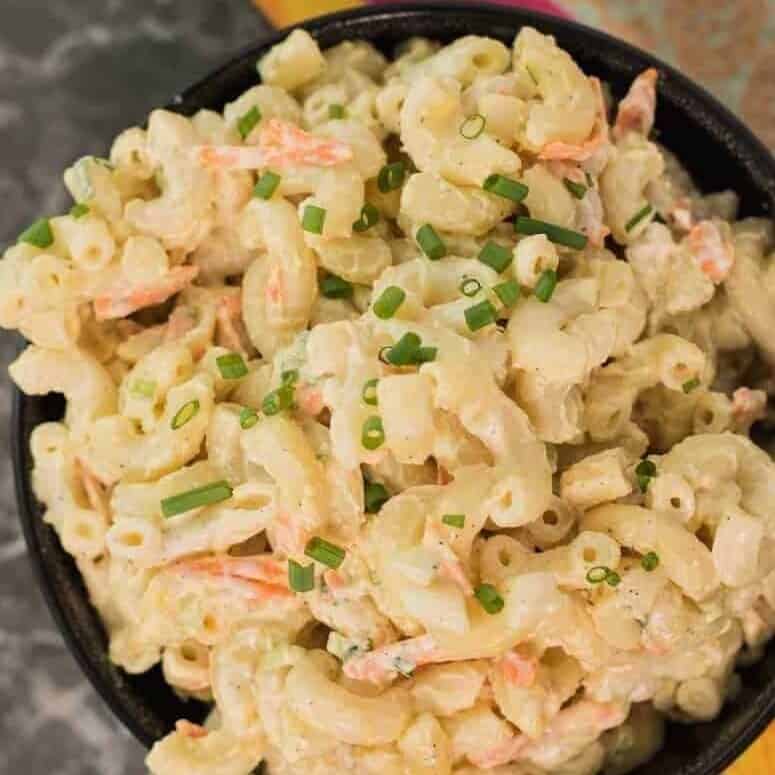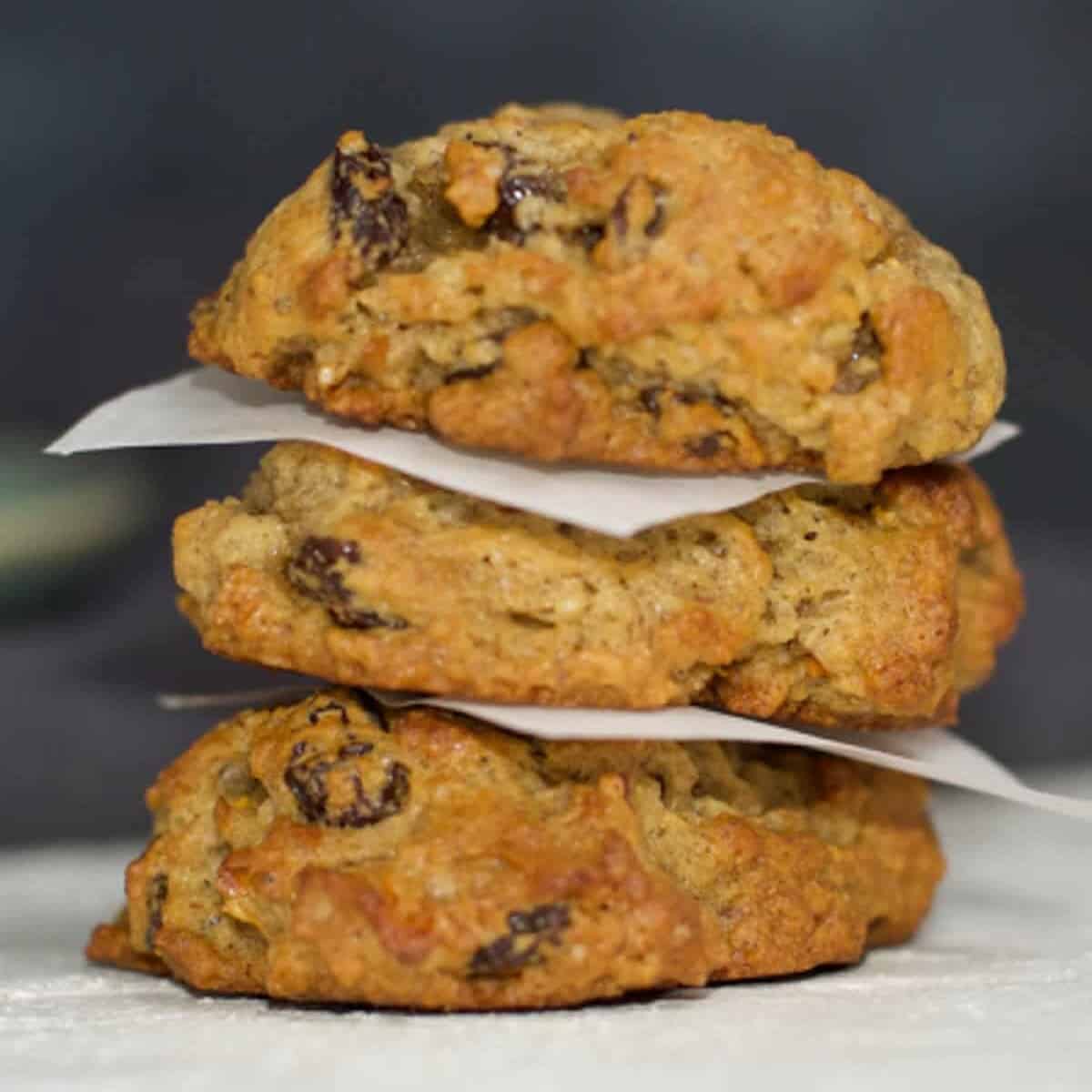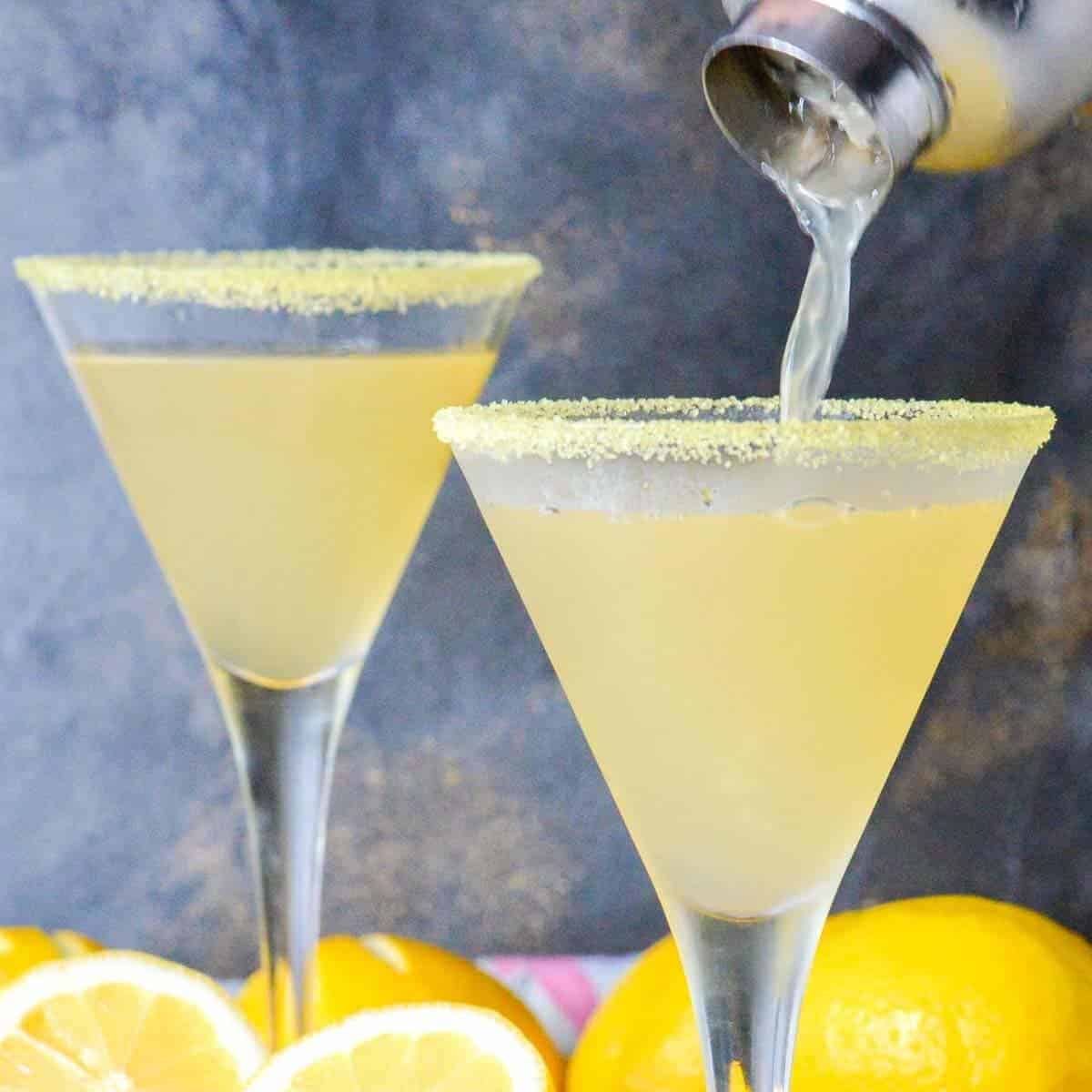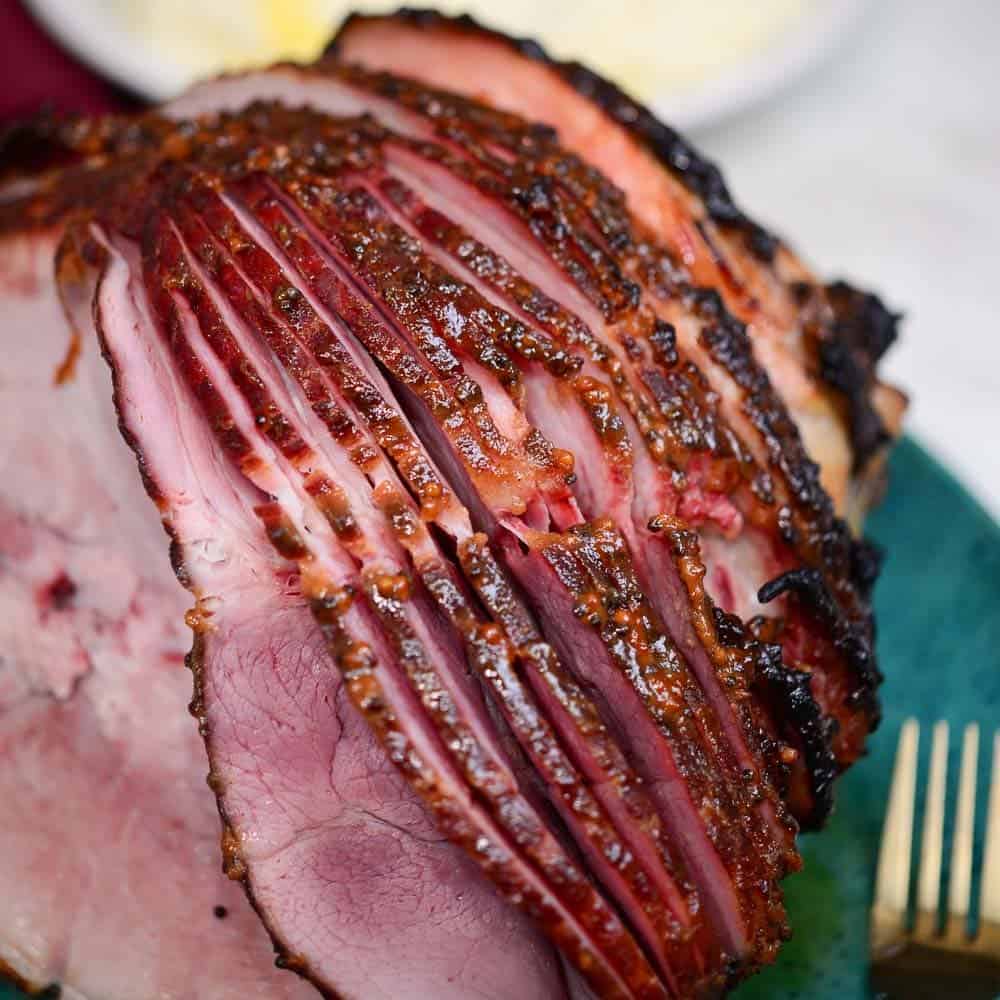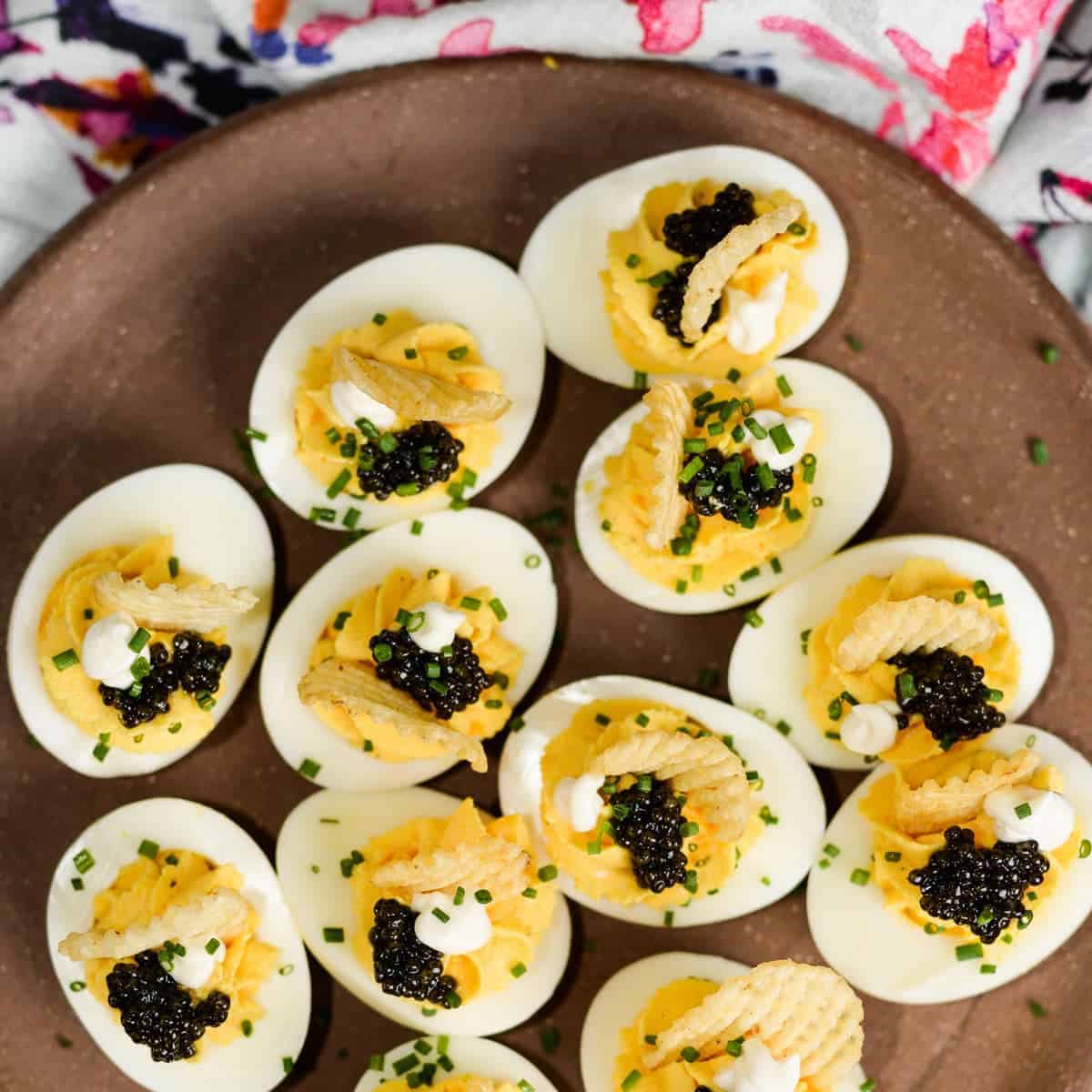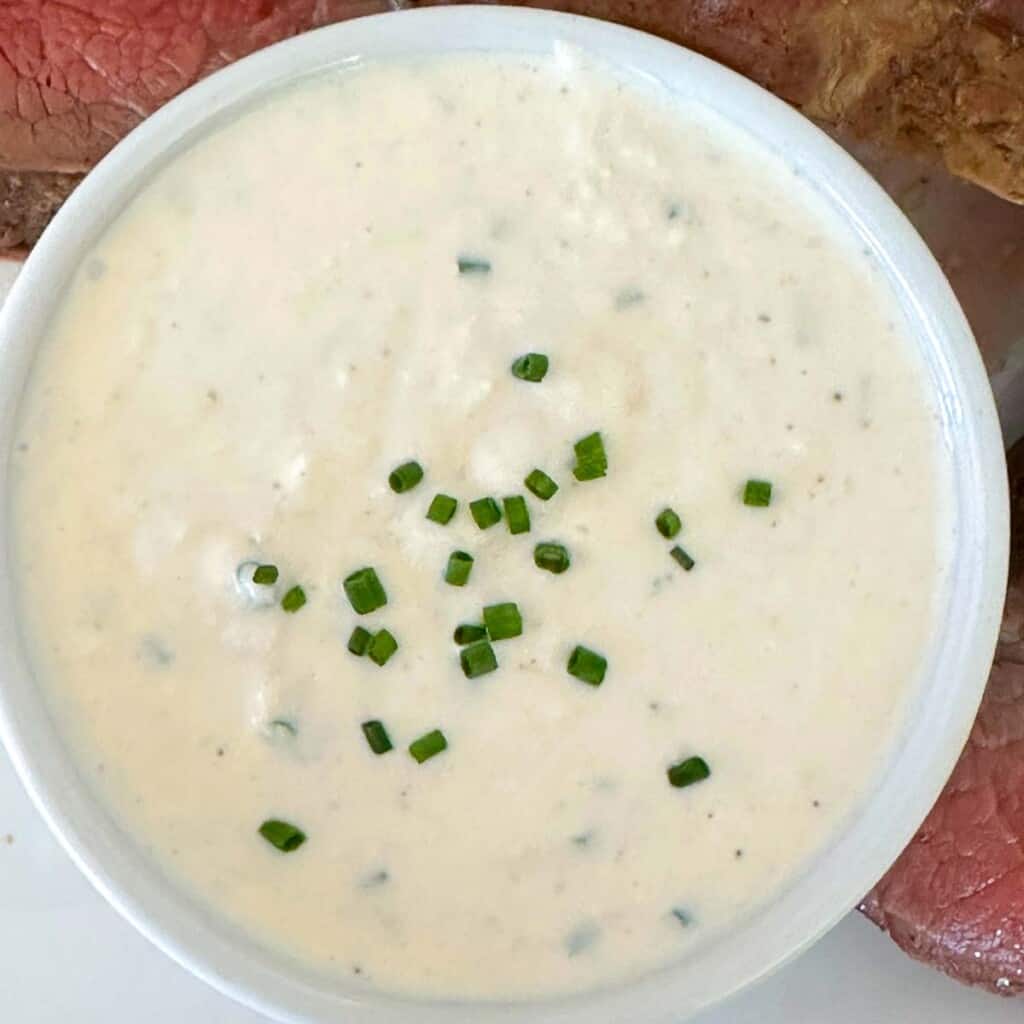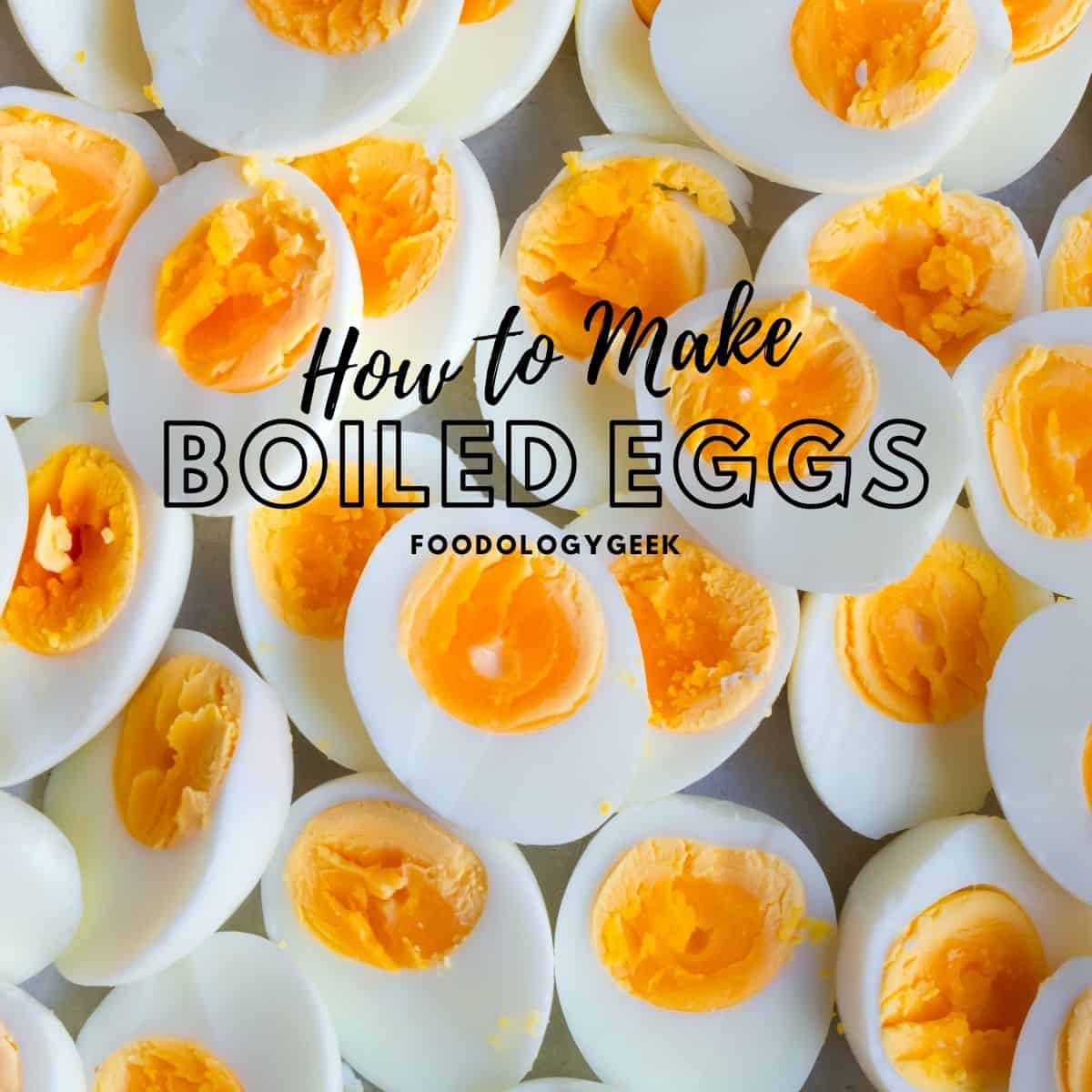Cooking Temperature Chart
I’ve put together a cooking temperature chart. You’ll find everything you need to know about safe cooking temperatures for beef, pork, and chicken. Plus, how to tell if your brownies and cakes are baked perfectly.
Knowing the right cooking temperature not only ensures that cooked meat is safe to eat, but it’s also essential to cooking the most flavorful and juicy grilled steaks.
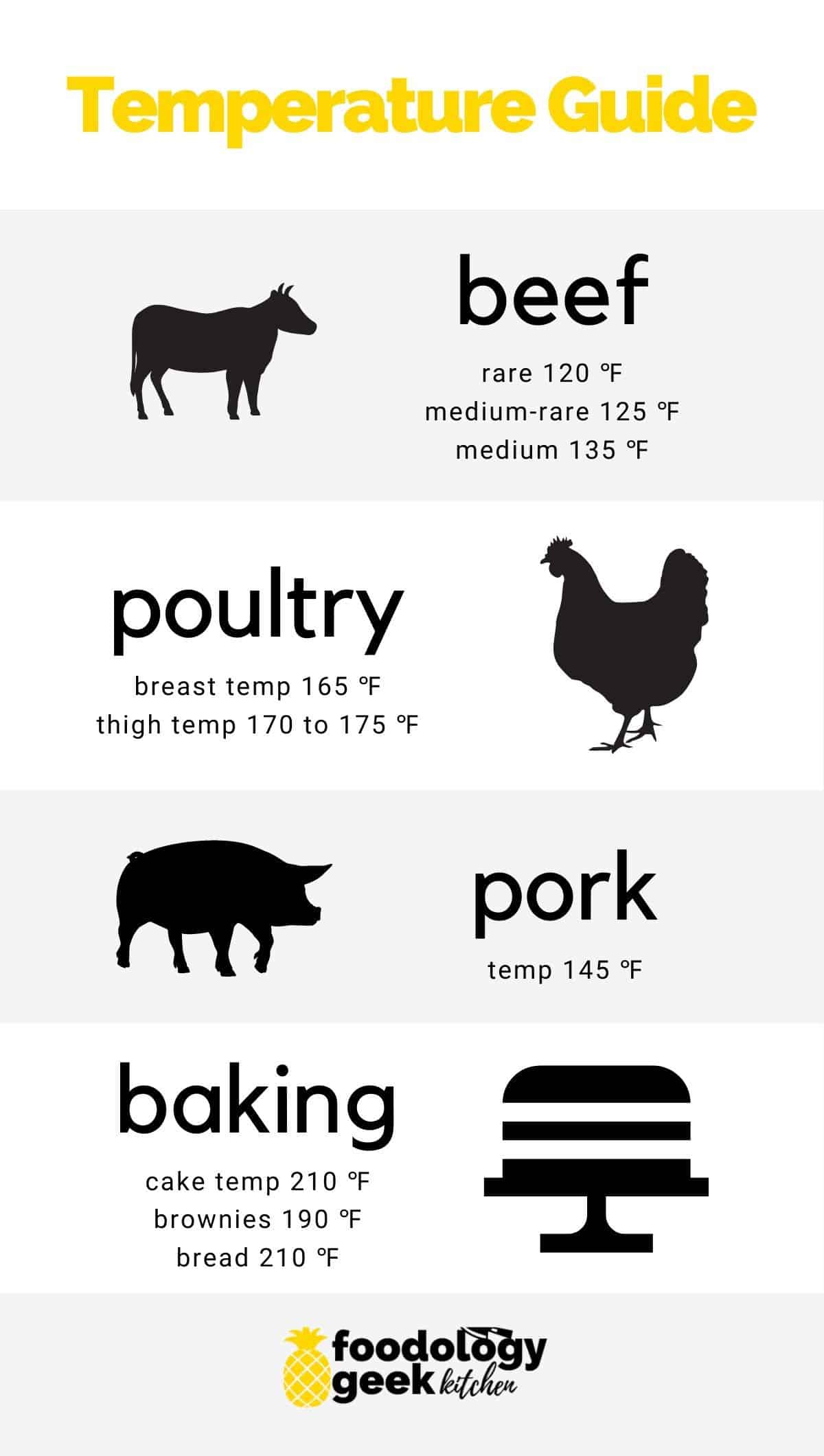
Making a small investment in a cooking thermometer can make a world of difference in all of your recipes. I’m partial to Thermoworks thermometers, and I happen to be an affiliate. Of course, all opinions are one hundred percent my own.
I didn’t always see the value in using a probe thermometer when cooking or grilling meat. However, over the years, I have come to appreciate how much better my roasts and smoked meats are when I ensure the internal temperature is in the perfect doneness zone.
Another surprise to me was how helpful a probe thermometer is when baking. Baking can be a time-consuming process. You want to know for sure that your cake or loaf of bread is cooked to perfection.
A Few Expert Tips
There are a few questions that I get all the time about cooking temperature. I’m going to answer a few of them here. Leave me a comment if you have any other questions about cooking temperatures.
The carry-over effect in cooking refers to the rise in internal temperature after removing a cut of meat from the oven or other cooking surfaces, such as a grill or pan.
This temperature rise occurs as heat moves from the outer surface toward the center of the meat. The amount of carry-over effect depends mainly on the temperature at which the meat was cooked and its mass.
You can expect an average rise in the internal temperature of 5 to 15 degrees, depending on several factors.
What is happening when you rest meat? Good question.
When the meat hits a hot surface, the water in the tissue moves towards the outside of the muscle fibers. This is one reason why you will hear sizzling.
If you cut open meat immediately after removing it from the heat, you will lose a lot of the flavorful juiciness on your plate instead of in your steak.
Resting meat for 10 minutes after cooking allows the water in the meat to move back towards the center. This movement of liquid contributes to the carry-over effect and yields a juicier, more flavorful steak.
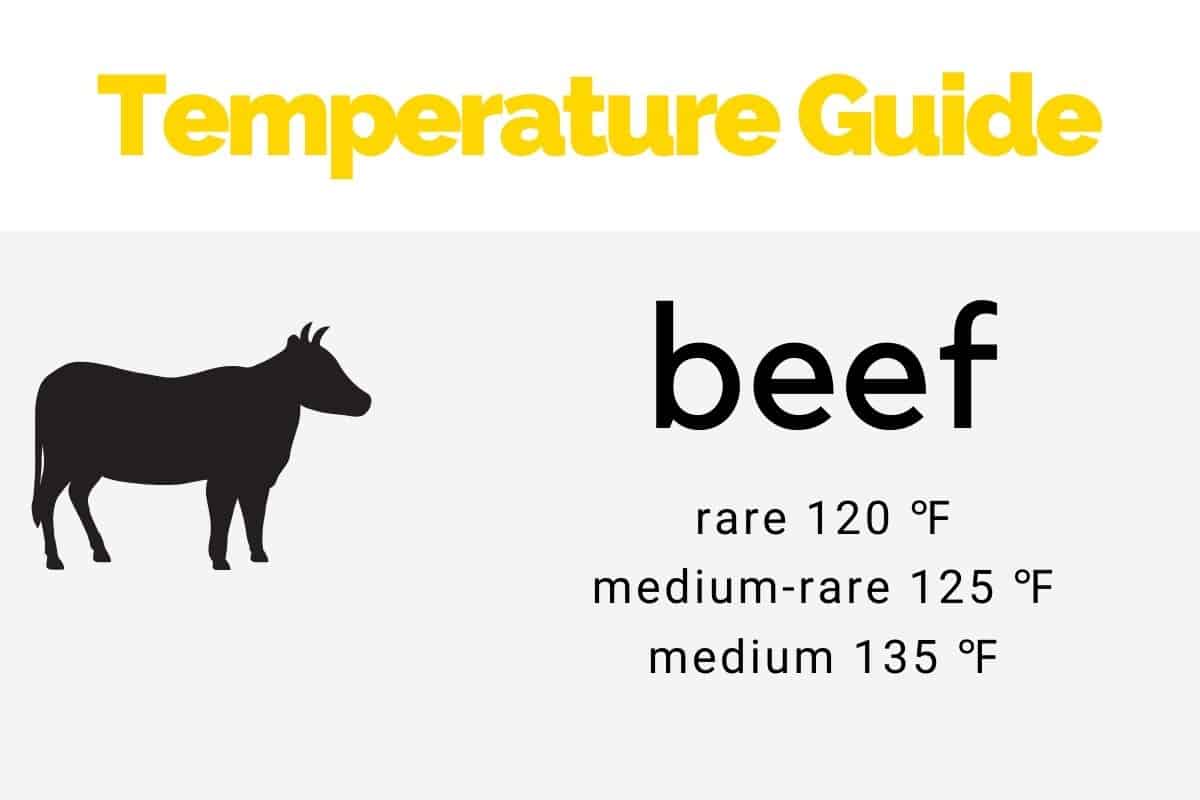
Beef Safe Internal Cooking Temperature
The safe internal temperature for beef varies depending on if the meat is ground or not.
Ground Meat
Cook meatloaf, sausages, and hamburgers until they reach an internal temp of 160℉ (71℃).
Use this internal temperature when cooking ground chicken, turkey, and things like casseroles and quiches.
Chef Recommended Temperature for Hamburger
The chef-recommended temperature is usually much lower, especially concerning hamburgers. For example, a medium-rare burger should have an internal temp of 145℉ (63℃).
According to US safety guidelines, when cooking with ground beef, you should always use caution when preparing an ‘undercooked’ burger.
Ground beef should be freshly ground and stored in the refrigerator until you are ready to cook it.
Beef Recipes
Here are a few tasty beef recipes to try.
The Steak and Sweet Potato Fries Bowl is made with delicious marinated and then grilled chateaubriand steak. It’s juicy and flavorful. The Burger Bowls make an easy and tasty low-carb dinner or lunch.
This Meatloaf Sandwich is crazy good with sweet onion jam. Lastly, the Greek Lamb Burger Bowl is a flavor-packed healthy bowl of protein and veggies.
Temperature and doneness for Steak and Beef Roasts. How done is it?
| Temperature | Doneness | Appearance |
| 115℉/46℃ | Blue Rare | Seared on the outside, raw on the inside. |
| 120℉/49℃ | Rare | Very red center. The center is red about 75% through. Tender and juicy. |
| 126℉/52℃ | Medium- Rare | Mostly red to pink center. This steak is pink about 50% through. This steak is still tender and juicy. |
| 134℉/57℃ | Medium | Barely pink in the center. This steak is starting to get tough and losing its juiciness. |
| 150℉/66℃ | Medium-Well | Just a tiny hint of pink in the middle. This steak is dry and tough. It’s almost inedible. |
| 160℉/71℃ | Well Done | Brown all the way through. Toss it in the trash or feed it to the dog. Cooking a steak to this temperature should be a crime. |
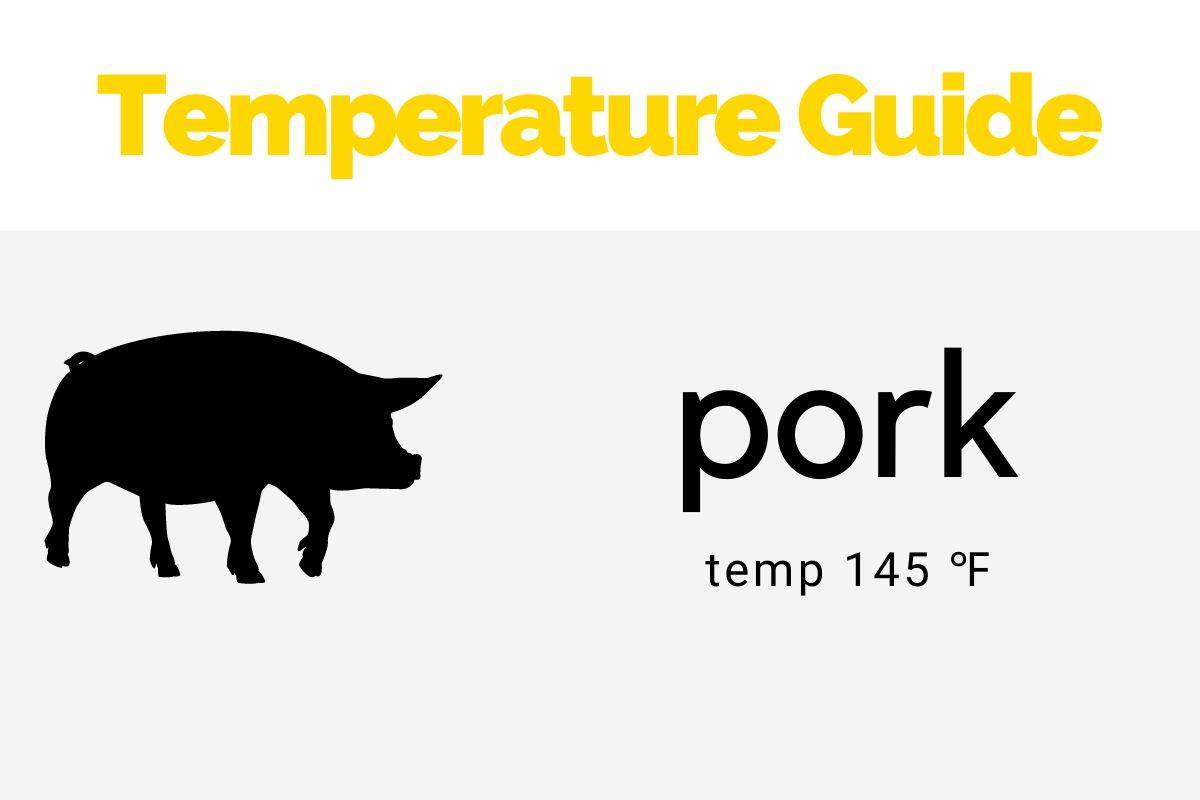
Cooking Temp For Pork
According to the USDA safe cooking guidelines, cook pork to an internal temperature of 145℉ (63℃). Trichinosis is killed off at 137℉ (58℃).
CAN YOU EAT PORK IF IT’S PINK?
Yes, the color of the meat is not an indication of its doneness. The only way to accurately determine the internal temperature is to use a probe thermometer.
Smoked Pork Temperature
The ideal temperature for a smoked pork butt is 205℉ (96℃).
Well past the safe cooking temperature, at 205℉ (96℃), the pork will be fall-off-the-bone tender and perfect for pulled pork.
Pork Recipes
A few of our favorite pork recipes.
Give this Smoked Pork Butt recipe a try for the best pulled pork sandwiches. Or grill up the BBQ Pork Kebobs served with a Peach Bourbon BBQ Sauce.
Roasted Pork Tenderloin is an easy dinner recipe. Serve with roasted veggies. Serve this slow-cooked Pork Ragu over creamy polenta or pappardelle noodles.
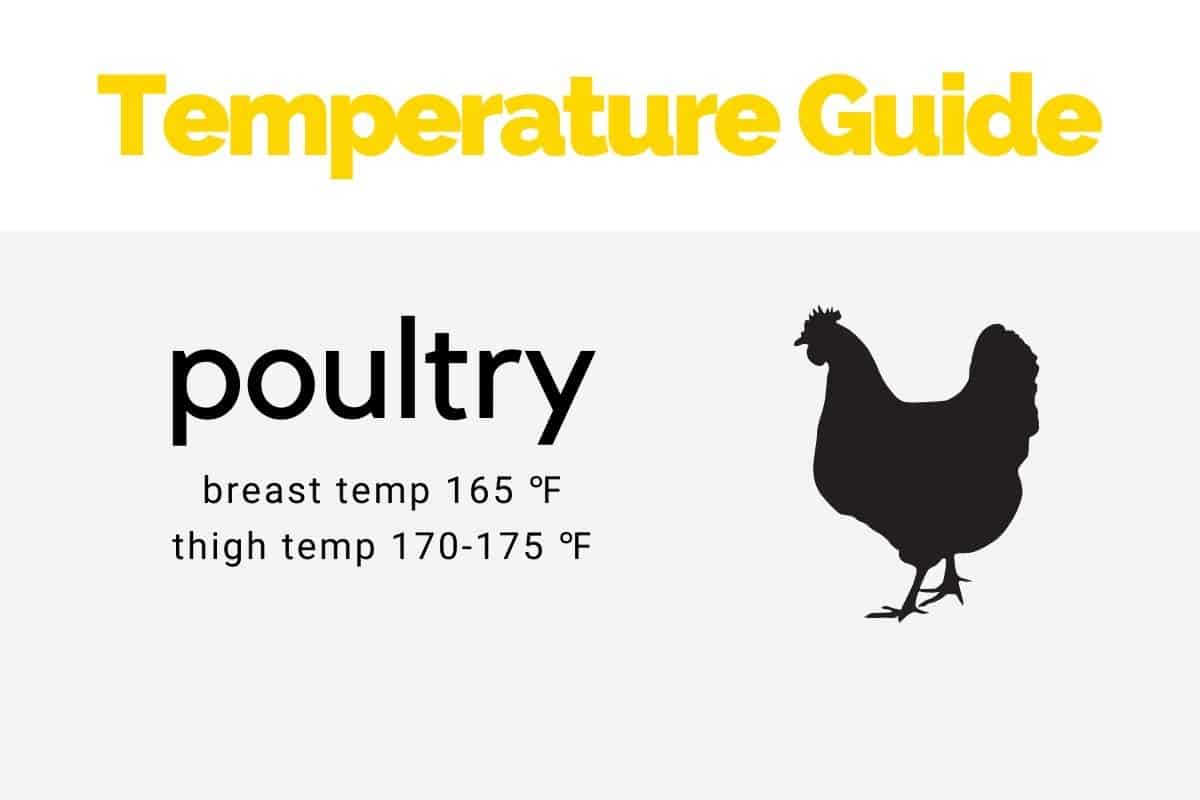
Safe Cooking Temp For Poultry
Chicken and turkey might be the most often overcooked meat because there is so much confusion about how “fully done” poultry should look.
Contrary to popular belief, chicken can be fully cooked and still be pink inside. Thus, the color of poultry does not reflect its doneness.
The USDA recommends that the internal temperature of poultry is 165℉ (74℃) at the breast and 170℉ (77℃) to 175℉ (79℃) at the thigh.
Why is the temperature different for breast meat and thigh meat?
All food-borne pathogens are killed off at 165℉ (74℃). So why recommend a higher temperature for dark meat?
Thigh meat has more connective tissue than breast meat, requiring a higher temperature to break down the connective tissue. The higher temperature will yield a more tender and juicy thigh and drumstick.
Poultry Recipes
Chicken recipes are the mainstay of most household dinners. Here are a few of my favorite chicken recipes and an Oven Roasted Turkey Breast Recipe. I love making this recipe when I have a small Thanksgiving dinner planned.
This Chicken Meatball Recipe has an Asian flavor and is so tasty that you’ll be making this easy dinner recipe all the time. Grilled Chicken Curry Recipe is marinated and then grilled for the most flavorful chicken you’ve ever had.
My all-time favorite fried chicken recipe is this Furikake Fried Chicken served with Sriracha Aioli. These are easy fried chicken tenders but have a Hawaiian twist.
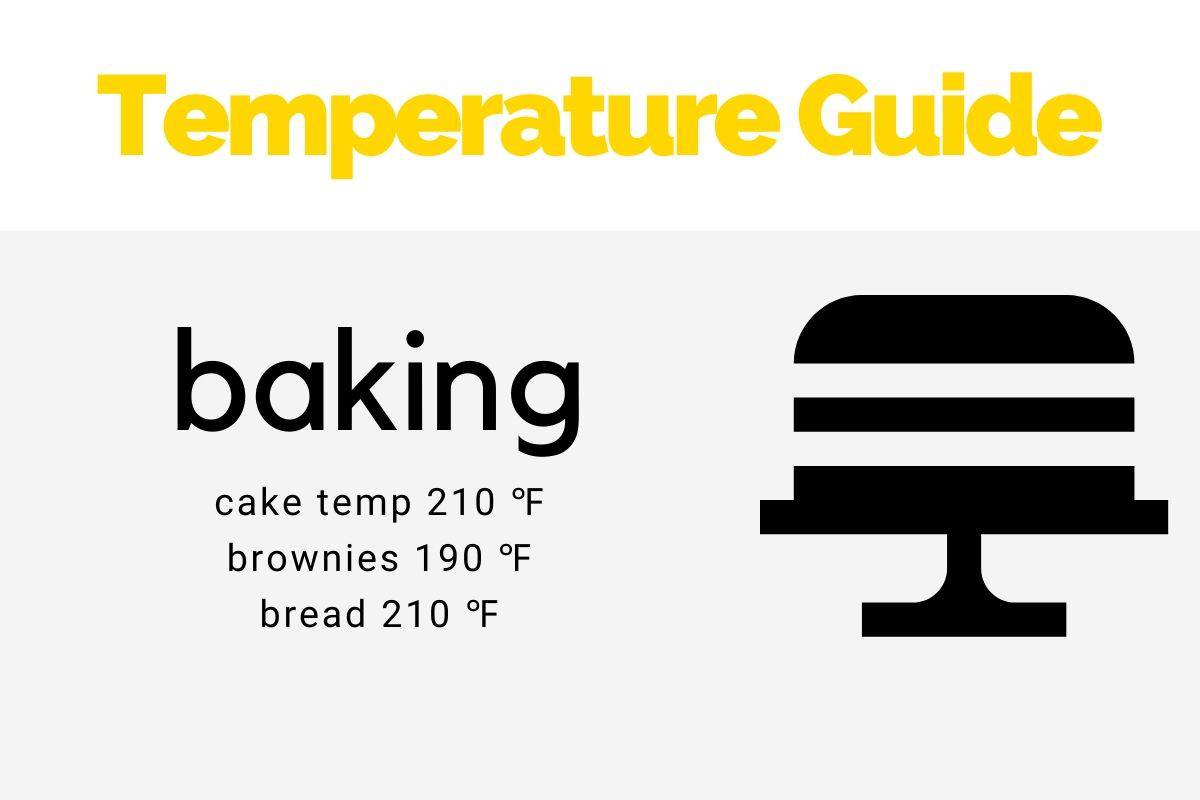
Safe Cooking Temp For Baked Goods
Have you ever taken a cake or banana bread out of the oven to find that you didn’t thouroughly cook it? Not to mention the sourdough bread that you’ve spent two days working on. Nothing is worse!!
Bake it too long, and your cake will be dry. Bake it not long enough and it may be raw on the inside.
Temperature for Bread
The internal temperature for bread should be 190℉ (88℃) to 210℉ (99℃). This temperature applies to risen bread like sourdough, french bread, or sandwich bread and rolls, known as lean doughs.
For a quick bread or cake bread recipe, such as banana bread, the internal temperature should be 180℉ (82℃)190 to 190℉ (88℃).
Temperature for Brownies
Brownies and bars are similar in consistency to dense sweetbreads and can follow the same temperature guidelines. For moist fudgy brownies, the temperature should be between 180℉ (82℃)190 to 190℉ (88℃).
For cake-like brownies, bake until they reach an internal temperature of 210℉ (99℃).
Temperature for Cake
The internal temperature of the cake should be 210℉ (99℃) in the center.
There are other ways to guess the doneness of your cake. Like, is it pulling away from the sides of the pan? OR does a toothpick come out clean?
I like to take all the guesswork out and use a probe thermometer. That way, you know for sure!
A Few Baked Goods To Try
Get Your Probe Thermometer Here!
As an affiliate, I do earn a small commission if you do order your thermometer using this link. Thank you 💜

See Related Technical Content
If you’re interested in learning more about cooking science, check out my guide on Essential Cooking Conversions. This post covers everything from liquid conversions to baking by grams and you’ll find out how to convert baking times for different baking pans.
Get the Kitchen Conversions Guide. It’s the ultimate guide for all of the most common cooking conversions that you will ever need in the kitchen.

